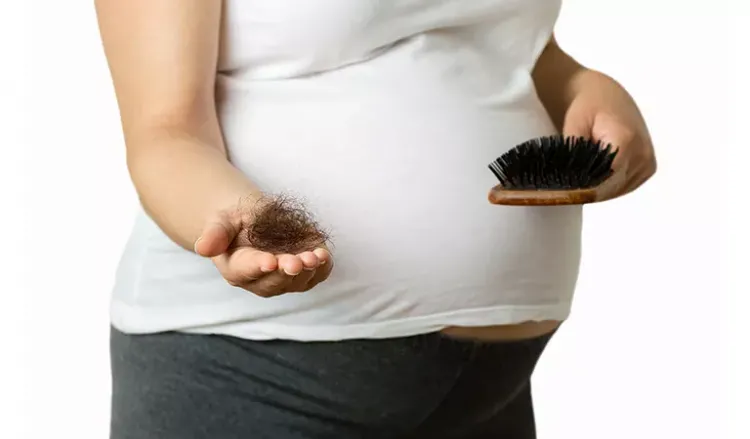Understanding Hair Loss During Pregnancy
Hair loss during pregnancy and postpartum is a common concern for many women, often causing stress and frustration. While pregnancy is usually associated with thick, healthy hair due to elevated hormone levels, some women experience noticeable hair thinning. This can be linked to various factors including hormonal fluctuations, nutritional deficiencies, and the physical stress of pregnancy. In this section, we will explore the underlying causes of hair loss during and after pregnancy.
Causes of Hair Loss During Pregnancy and Postpartum
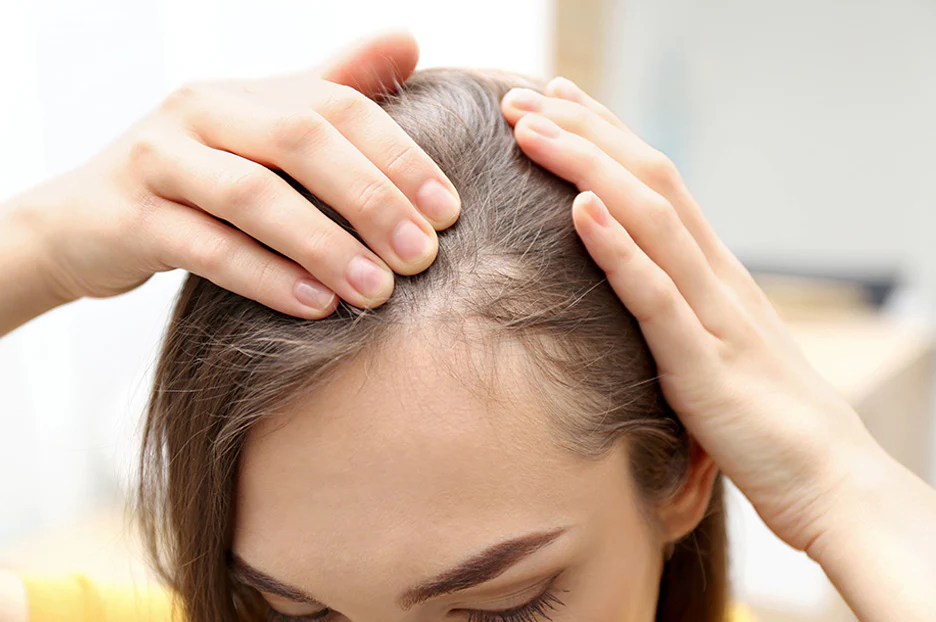
One of the main causes of hair loss during pregnancy is the hormonal shift that occurs. Typically, increased levels of estrogen prolong the hair’s growth phase, leading to fuller, more luscious locks. However, after childbirth, estrogen levels drop dramatically, causing hair to enter the resting or shedding phase. This phenomenon, known as telogen effluvium, results in significant hair shedding that often peaks a few months postpartum.
Additionally, changes in blood circulation, nutrient absorption, and physical stress from childbirth can contribute to hair loss during this period. Hair follicles may temporarily stop growing, resulting in thinning and shedding.
How Hormonal Changes Affect Hair Growth
During pregnancy, increased levels of estrogen prevent hair from falling out at its regular rate. However, after delivery, hormone levels plummet, and this delayed hair shedding catches up, leading to noticeable hair thinning. Progesterone, another key hormone, may contribute to hair fragility, making strands more prone to breakage.
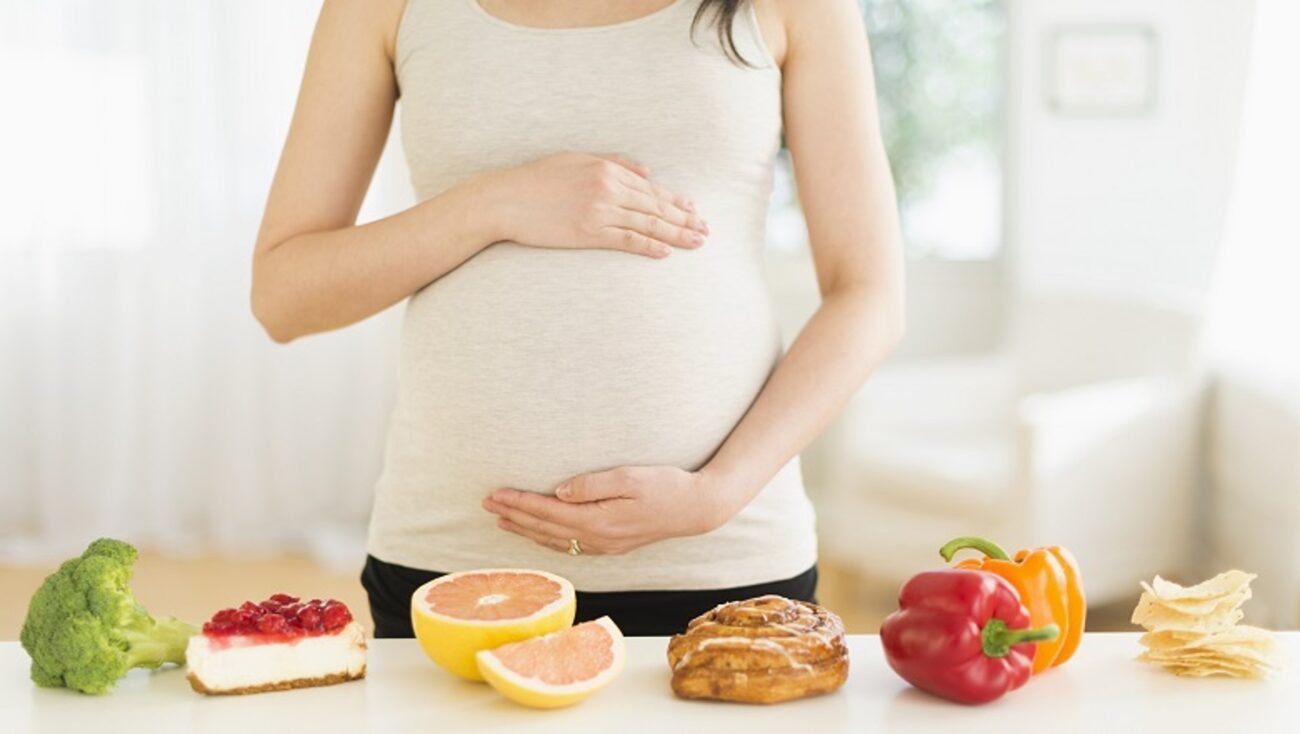
Nutritional Deficiencies Linked to Pregnancy-Related Hair Loss
Many women experience iron deficiency, low levels of biotin, or reduced intake of essential fatty acids during pregnancy, all of which can impact hair health. The body prioritizes nutrients for the baby’s growth, sometimes leaving hair follicles undernourished. A lack of vitamins like B12, D, zinc, and folic acid can also contribute to hair thinning and breakage during pregnancy.
Stress and Emotional Factors Influencing Hair Loss in Pregnant Women
Pregnancy brings emotional and physical stress, which can contribute to temporary hair loss. Elevated levels of the stress hormone, cortisol, may disrupt the natural hair growth cycle. Hair loss due to stress is often referred to as stress-induced telogen effluvium.
Normal vs. Excessive Hair Loss During Pregnancy: When to Worry
It’s normal for some women to experience mild hair shedding during pregnancy. However, if you notice large clumps of hair falling out or a significant thinning, it might indicate an underlying condition such as thyroid imbalance or autoimmune disease. Consulting a healthcare provider is crucial if hair loss seems excessive or prolonged.
Common Types of Hair Loss Related to Pregnancy
Understanding the type of hair loss you’re experiencing can help in finding the right remedy.
Telogen Effluvium: Shedding During and After Pregnancy
Telogen effluvium is the most common form of hair loss during pregnancy, where the hair prematurely enters the shedding phase due to hormonal changes. This results in thinning hair, especially noticeable after childbirth.
Postpartum Hair Loss: The Most Common Form of Hair Thinning
Postpartum hair loss typically begins around 2-4 months after delivery, as hormone levels return to normal. The good news is that this type of hair loss is temporary, and most women regain their normal hair density within 6-12 months postpartum.
Androgenic Alopecia: Hormonal Influence on Hair Thinning in Women
For some women, androgenic alopecia—a genetic condition influenced by hormonal changes—may worsen during or after pregnancy, leading to gradual thinning on the crown or temples. While this form of hair loss isn’t reversible with home remedies, treatments can slow its progression.
Herbal and Home Remedies to Treat Pregnancy-Related Hair Loss
Natural remedies are popular for managing pregnancy-related hair loss because they avoid the use of harsh chemicals, which are often unsuitable during this sensitive period.
Benefits of Herbal Remedies for Hair Loss
Herbal remedies provide a gentle, natural approach to promoting hair growth. These remedies are rich in antioxidants, vitamins, and minerals that nourish the scalp and strengthen hair follicles. Additionally, they have fewer side effects compared to pharmaceutical treatments.
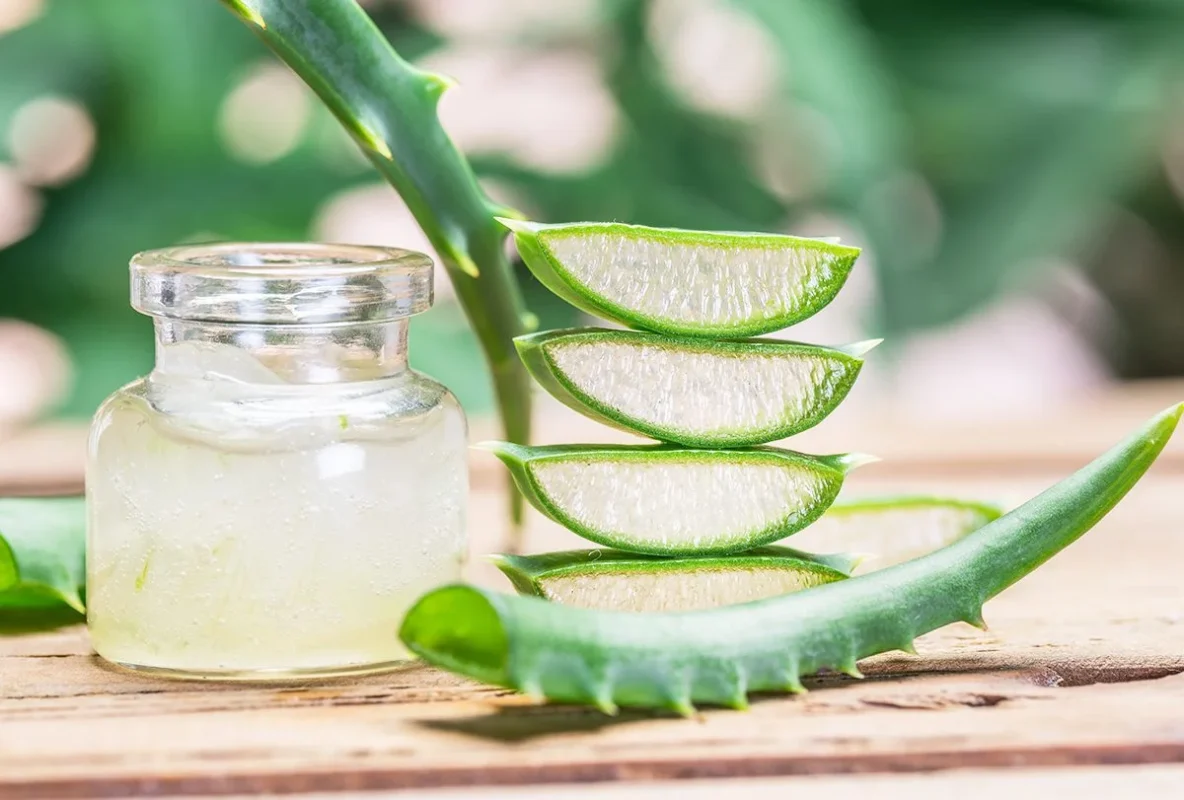
Aloe Vera: Natural Scalp Moisturizer and Hair Growth Stimulator
Aloe vera is known for its soothing properties, making it an excellent choice for irritated scalps. Its high content of enzymes and vitamins can help promote hair growth by maintaining a healthy scalp environment. To use aloe vera, apply the gel directly to your scalp and leave it on for 30 minutes before rinsing.
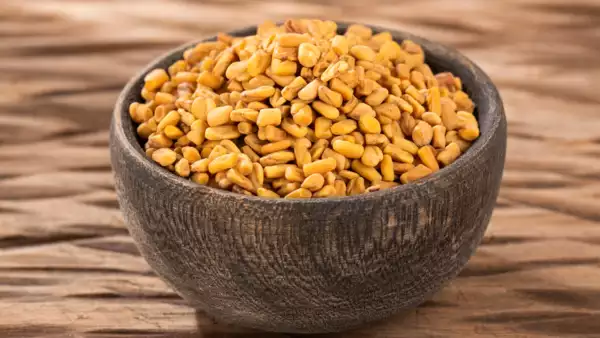
Fenugreek Seeds: Promoting Hair Growth and Reducing Shedding
Fenugreek seeds are packed with protein and nicotinic acid, which are known to strengthen hair and promote regrowth. Soak a handful of seeds overnight, grind them into a paste, and apply it to your scalp for an hour. This remedy has been used in traditional medicine to reduce hair fall.
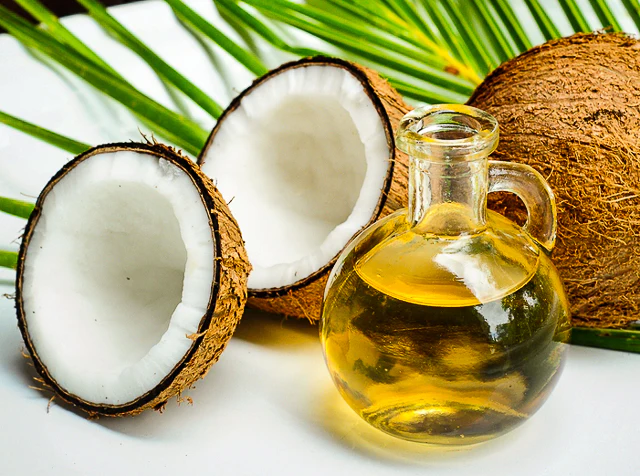
Coconut Oil: Nourishing Hair and Scalp Health
Coconut oil is rich in fatty acids and antioxidants, which can penetrate the hair shaft and reduce protein loss. Regular use of coconut oil not only nourishes the hair but also strengthens hair follicles, preventing excessive shedding. Warm up the oil and massage it into your scalp before washing your hair.
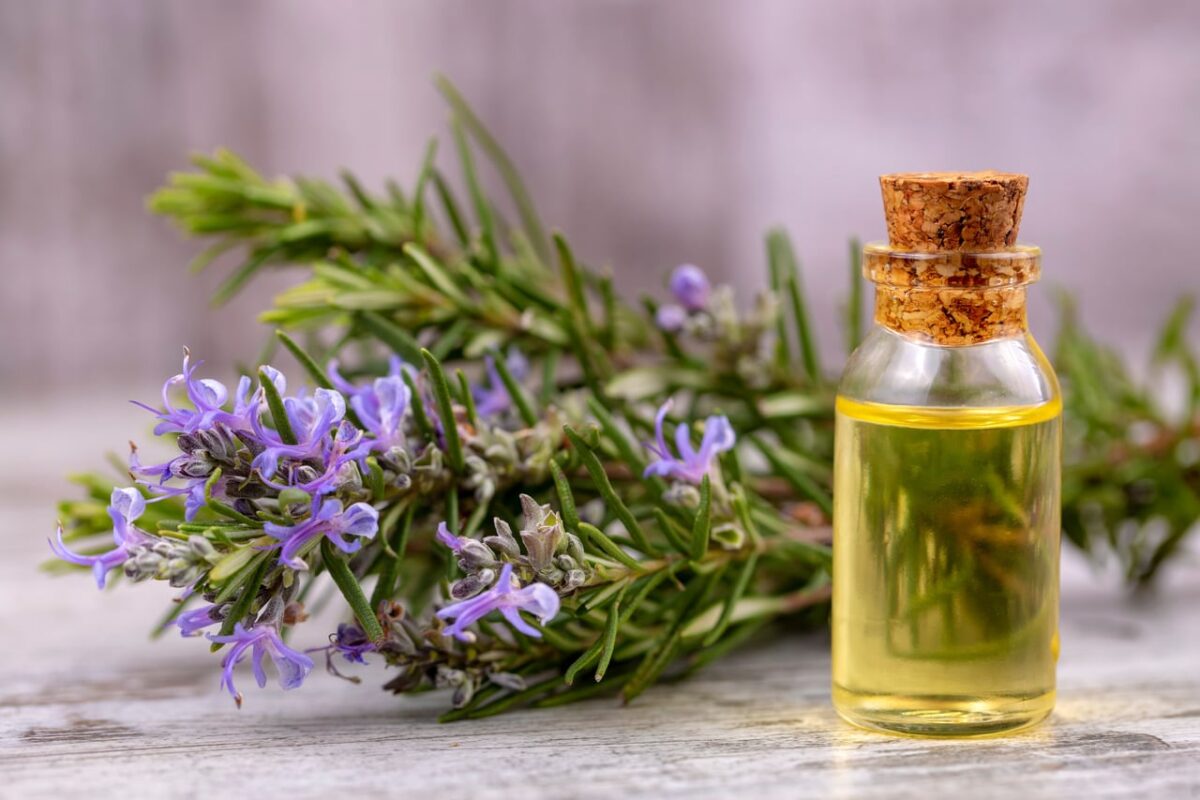
Rosemary Oil: Stimulating Blood Circulation and Hair Growth
Rosemary oil is widely recognized for its ability to improve circulation and stimulate hair follicles. Mix a few drops of rosemary oil with a carrier oil (such as coconut or olive oil) and massage it into your scalp to promote hair regrowth.
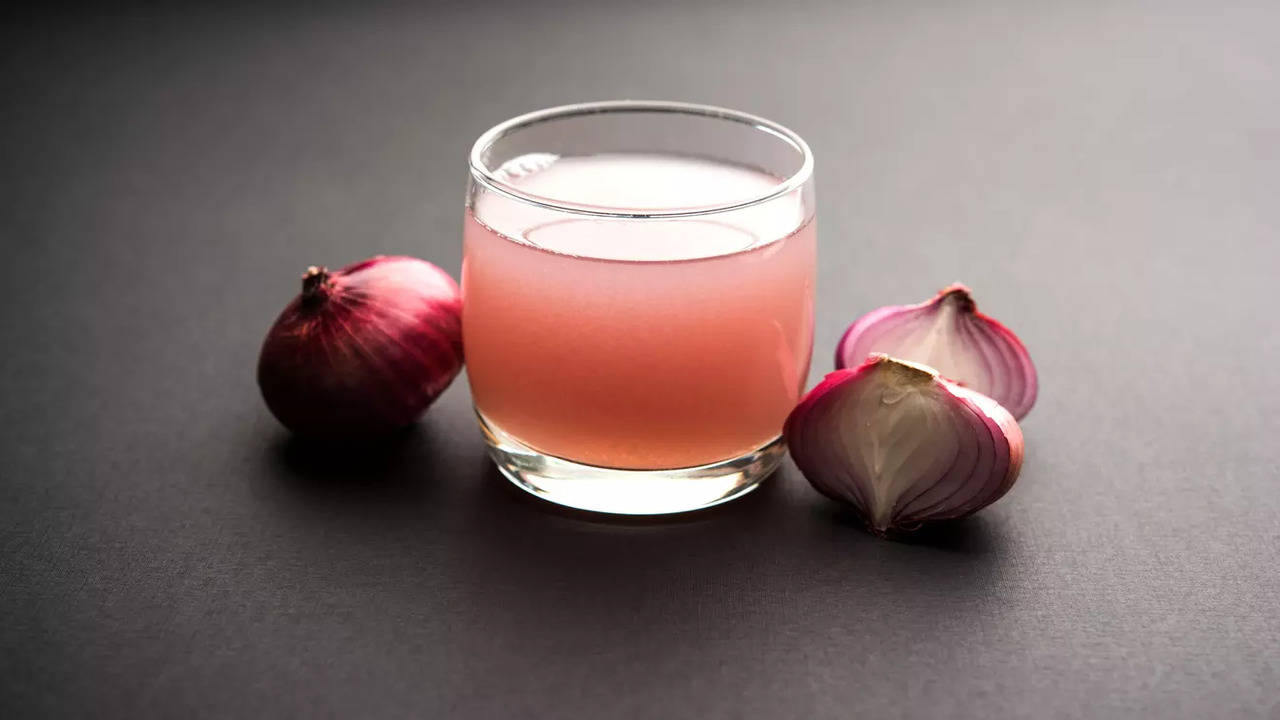
Onion Juice: A Potent Remedy to Boost Hair Follicles
Onion juice contains high levels of sulfur, which is essential for the production of collagen—a protein that supports hair structure. Apply freshly extracted onion juice to the scalp and leave it on for 30 minutes. This treatment, although strong-smelling, has been shown to boost hair growth.
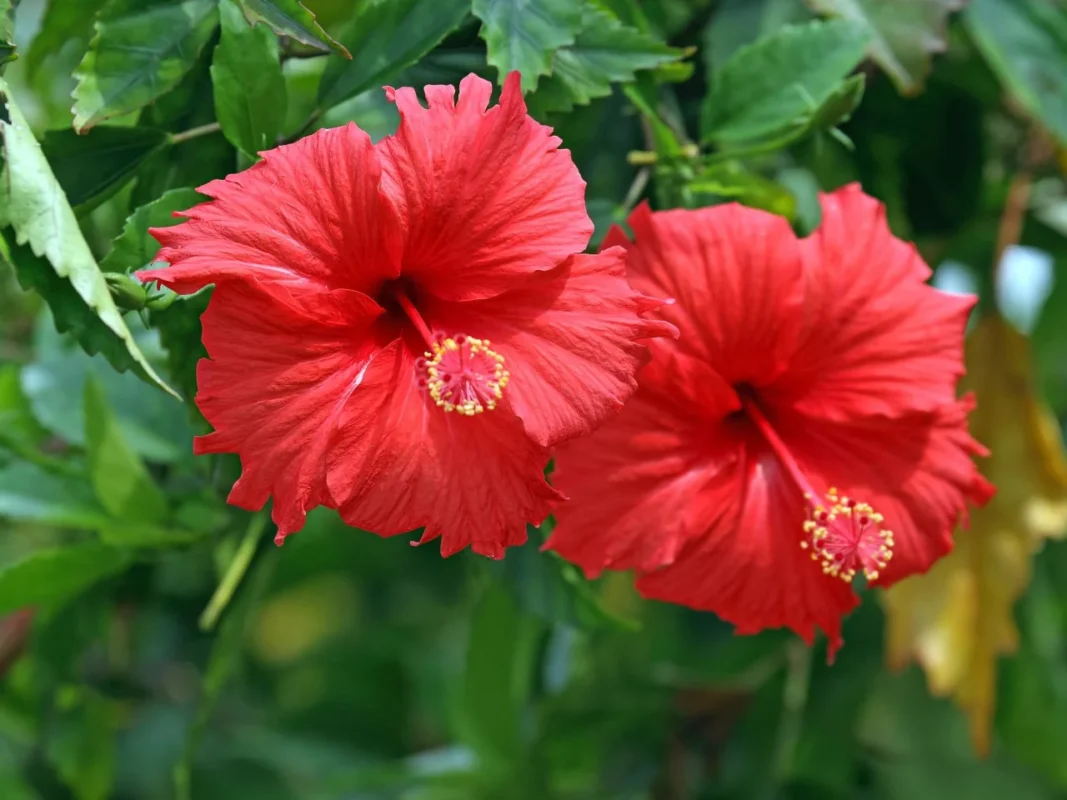
Hibiscus: Rejuvenating Hair and Preventing Hair Thinning
Hibiscus flowers and leaves are rich in amino acids and vitamins, helping to rejuvenate hair and prevent thinning. Make a paste using hibiscus flowers and apply it to the scalp once a week to nourish the hair and enhance its shine.

Indian Gooseberry (Amla): Rich in Antioxidants for Hair Strengthening
Amla, a staple in Ayurvedic medicine, is a powerful source of vitamin C and antioxidants. These properties help strengthen hair follicles, prevent hair thinning, and stimulate new hair growth. You can use amla oil or create a hair mask using amla powder mixed with water.
Home Remedies for Improving Hair Health During Pregnancy
A holistic approach is crucial when it comes to preventing and treating hair loss during pregnancy. Aside from topical treatments, you should also focus on internal health.

Balanced Diet: Importance of Nutritional Support for Hair Health
A diet rich in protein, iron, omega-3 fatty acids, and vitamins is essential for maintaining hair health during pregnancy. Foods such as eggs, spinach, nuts, and fish should be included in your diet to support hair growth and reduce shedding.
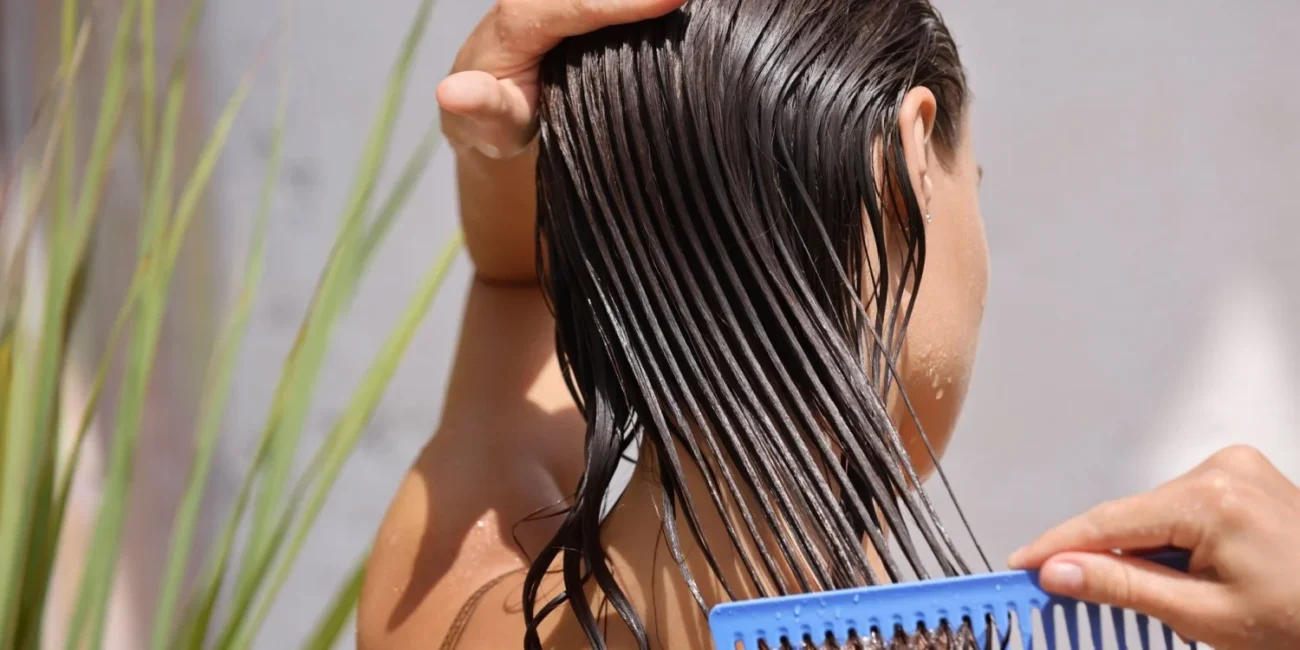
Hydration: Keeping Your Hair and Scalp Moisturized
Drinking plenty of water keeps your hair and scalp hydrated, which is essential for healthy hair growth. Dehydration can lead to dry, brittle hair that is more prone to breakage.
Essential Vitamins and Supplements: Biotin, Iron, and Vitamin E
Taking prenatal vitamins rich in biotin, iron, vitamin E, and folic acid helps nourish your hair from within. These nutrients play a crucial role in hair growth, ensuring your body has the necessary building blocks for strong, healthy hair.

Yoga and Meditation for Stress Reduction and Hair Health
Practicing yoga and meditation helps lower stress levels, which can improve hair growth by reducing the production of cortisol—a hormone that can trigger hair loss. Gentle stretching and breathing exercises improve blood circulation to the scalp, enhancing hair health.
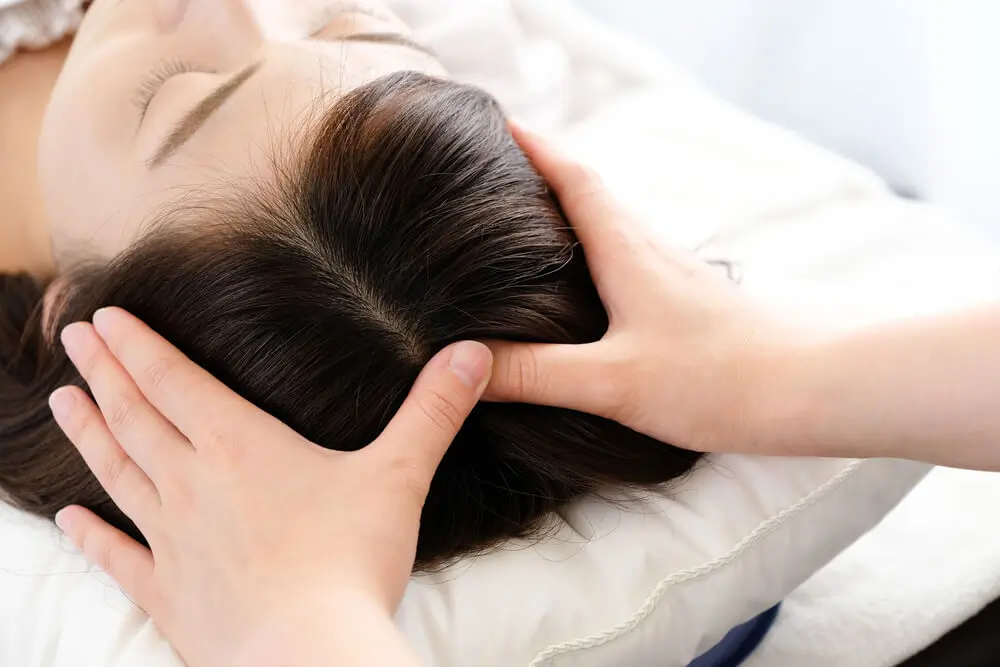
Scalp Massages: Promoting Circulation and Hair Follicle Stimulation
Regular scalp massages using herbal oils not only relax the mind but also promote blood circulation to the scalp. This stimulates hair follicles, encouraging new growth and reducing hair fall.
Additional Tips for Preventing Hair Loss During Pregnancy
Taking care of your hair gently during pregnancy can help minimize hair loss.
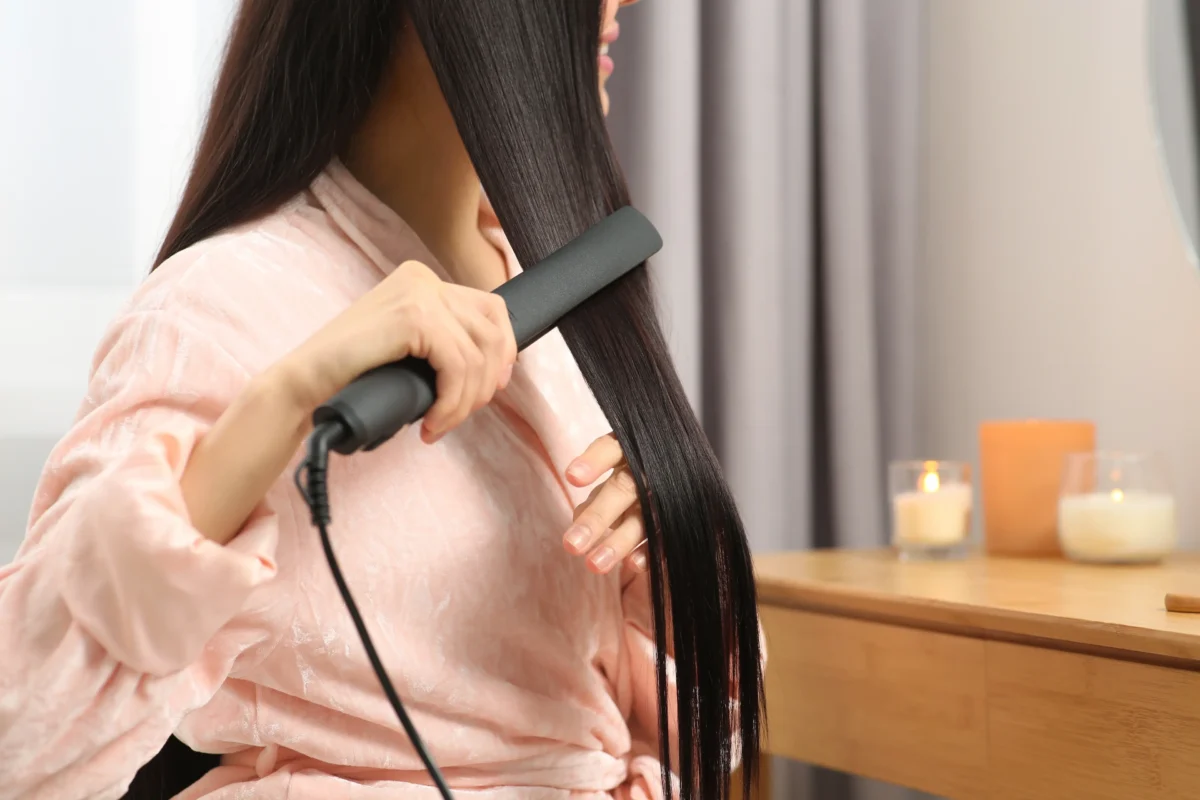
Avoiding Heat Styling Tools and Harsh Chemicals
Heat styling tools like straighteners and curling irons can weaken hair strands, making them more susceptible to breakage. Similarly, harsh chemicals from hair dyes and treatments should be avoided, as they can aggravate hair thinning.
Choosing the Right Hair Care Products for Pregnant Women
Opt for sulfate-free and paraben-free shampoos and conditioners that are gentle on your hair and scalp. Look for products specifically designed for sensitive hair during pregnancy.
Gentle Hair Handling: Brushing, Washing, and Styling Tips
Use a wide-tooth comb to detangle your hair and avoid vigorous brushing, which can lead to breakage. When washing your hair, use lukewarm water and avoid scrubbing the scalp too harshly. Gentle hair handling helps prevent unnecessary hair loss.
Maintaining a Healthy Sleep Cycle for Hair Growth
Lack of sleep can lead to increased stress levels, contributing to hair loss. Aim for a consistent sleep schedule to help regulate hormone levels and reduce the impact of stress on your hair.
FAQs
Can Hair Loss Due to Pregnancy be Completely Reversed?
Yes, hair loss due to pregnancy, particularly postpartum hair loss, is typically temporary and reversible. Most women regain their normal hair growth cycle within 6-12 months postpartum.
How Long Does Postpartum Hair Loss Last?
Postpartum hair loss usually starts around 2-4 months after childbirth and can last up to 6-12 months.
Are There Any Risk Factors that Increase the Chances of Hair Loss During Pregnancy?
Yes, factors such as nutritional deficiencies, stress, hormonal imbalances, and a family history of hair loss can increase the likelihood of pregnancy-related hair thinning.
Can I Use Over-the-Counter Hair Loss Treatments During Pregnancy?
It’s best to consult a healthcare provider before using any over-the-counter hair loss treatments during pregnancy, as some may contain ingredients that are not safe for pregnant women.
Is Hair Loss During Pregnancy a Sign of Nutrient Deficiency?
In some cases, hair loss during pregnancy may be linked to deficiencies in iron, biotin, or other essential nutrients, indicating the need for a more balanced diet or supplements.
How Can I Tell the Difference Between Normal Hair Shedding and Hair Loss?
Normal shedding involves losing about 50-100 hairs a day, while noticeable hair thinning or bald patches may indicate a more serious issue, such as telogen effluvium or another form of hair loss requiring medical attention.
Conclusion
Hair loss during and after pregnancy can be a daunting experience, but understanding the causes and applying the right remedies can ease the process. Incorporating herbal and home remedies such as aloe vera, fenugreek seeds, coconut oil, and a nutrient-rich diet can help restore hair health. Remember that hair regrowth takes time, so patience and consistency are key. In cases of excessive or prolonged hair loss, consulting a healthcare provider is recommended.

